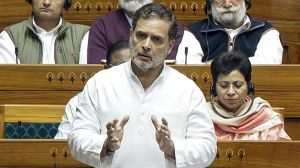Pakistan’s new rulers face tough economic times
KARACHI, OCT 15: Pakistan's armed forces announced they had taken complete control of the country on Friday, but they face a huge task in...

KARACHI, OCT 15: Pakistan’s armed forces announced they had taken complete control of the country on Friday, but they face a huge task in reining in an economy battered by years of misrule, analysts said.
They said the new regime will have to move quickly on a major economic plan to convince international donors to keep lending to the cash-starved country, which has a staggering $32 billion foreign debt.
"I guess much would depend on the response of the United States," said one investment banker early on Friday. Last December, the United States helped to partially lift sanctions imposed on Pakistan after its undertook nuclear tests in May that year, paving the way for the resumption of multilateral lending.
The sanctions helped push Pakistan’s economy into a tailspin from which it has only partially recovered. "We thought we had seen the worst in May last year and that a modicum of confidence was returning… The fear is that this coup could turn out to be a bigger jolt than the nuclear tests," said a research head at a brokerage firm.
Pakistan cash foreign exchange reserves were reported on Thursday at $1.46 billion as of October 9 and bankers said a halt in inflows could lead to an imminent default. Analysts said the International Monetary Fund (IMF), which has already withheld a tranche from a $1.56 billion loan programme, has been asking Pakistan to broaden its tax base, privatise key government institutions and resolve a bitter two-year row with independent power producers that has killed foreign investment interest. They said the new regime will have to give signals that it is ready to implement those conditions to improve ties with donors.
Senior bankers and officials said the central bank was likely to play a key role. The first indication of that came on Thursday when central bank Governor Muhammad Yaqub assured worried bankers that all of Pakistan’s debt payments would be made and that Pakistan was still on the IMF programme.
But a senior Finance Ministry official told Reuters on Thursday the ministry’s offices were closed and that he had been at home since the coup that overthrew Prime Minister Nawaz Sharif on Tuesday. "It is the state bank which has assumed a central role of economic decision making," said the official who asked not to be named.
Already the central bank has moved to conserve hard currency by withdrawing some facilities to remit foreign exchange outside the country, imposing cash margins on letters of credit for imports and asking private currency markets to remain closed for a week.
Banking sources said more measures could be announced on Friday to mitigate the effect of the formal army takeover. Bankers said the most crucial response should be from the IMF, which earlier said it was watching the Pakistan situation closely.
Bankers said Pakistan’s debt rescheduling package was also tied to the the IMF lending and was part of a three-year $19 billion life-line package that followed a partial lifting of sanctions after the nuclear tests in May 1998.
Pakistan this summer finalised accords with international banks to reschedule $877 million in commercial loans and earlier in the year with Western governments to roll over $3.3 billion in loans from country creditors. But the stock market, which fell more than seven per cent on Thursday on martial law rumours after being closed on Wednesday, could face a rough time, analysts said.
- 01
- 02
- 03
- 04
- 05































